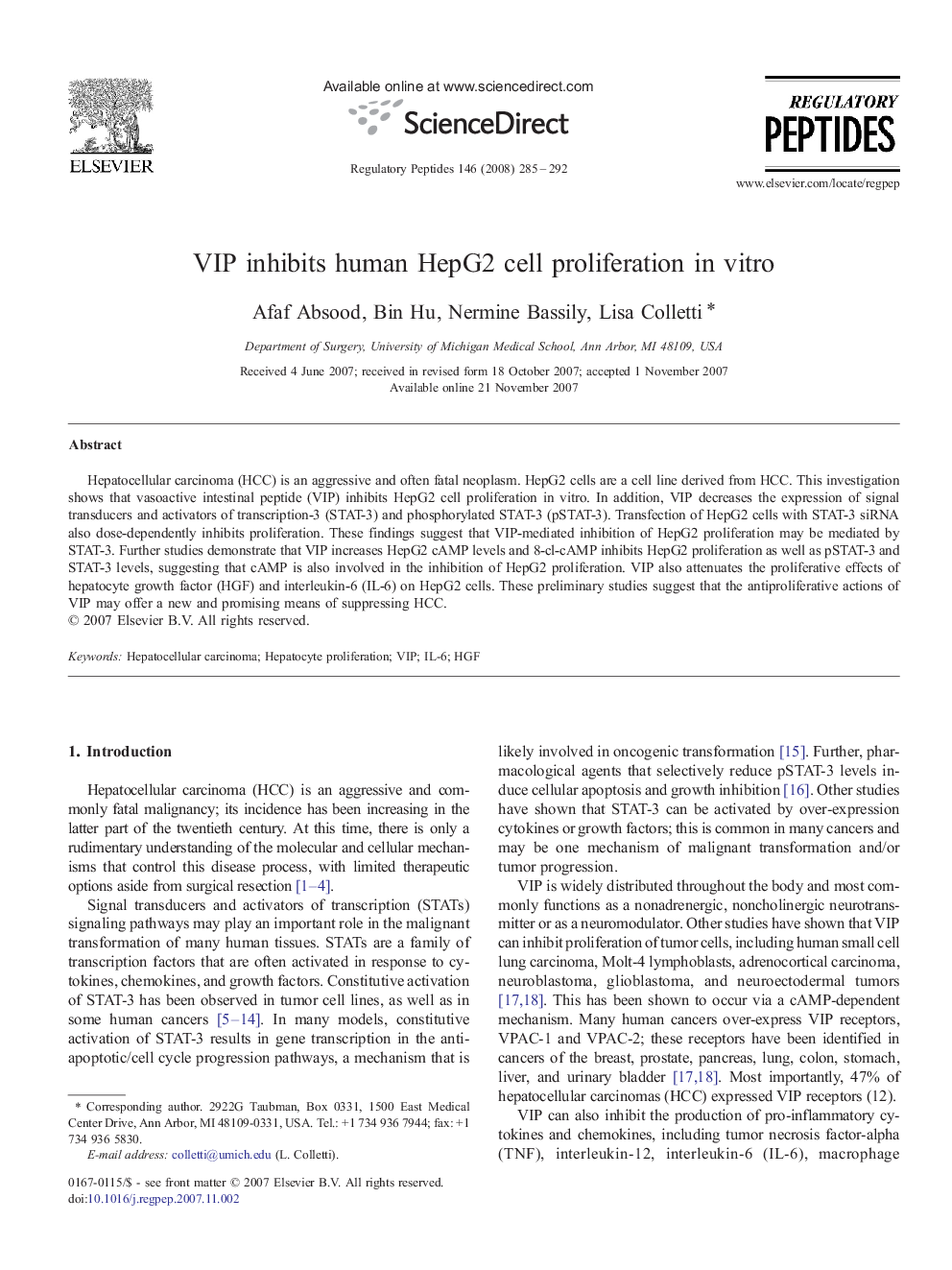| Article ID | Journal | Published Year | Pages | File Type |
|---|---|---|---|---|
| 2023252 | Regulatory Peptides | 2008 | 8 Pages |
Hepatocellular carcinoma (HCC) is an aggressive and often fatal neoplasm. HepG2 cells are a cell line derived from HCC. This investigation shows that vasoactive intestinal peptide (VIP) inhibits HepG2 cell proliferation in vitro. In addition, VIP decreases the expression of signal transducers and activators of transcription-3 (STAT-3) and phosphorylated STAT-3 (pSTAT-3). Transfection of HepG2 cells with STAT-3 siRNA also dose-dependently inhibits proliferation. These findings suggest that VIP-mediated inhibition of HepG2 proliferation may be mediated by STAT-3. Further studies demonstrate that VIP increases HepG2 cAMP levels and 8-cl-cAMP inhibits HepG2 proliferation as well as pSTAT-3 and STAT-3 levels, suggesting that cAMP is also involved in the inhibition of HepG2 proliferation. VIP also attenuates the proliferative effects of hepatocyte growth factor (HGF) and interleukin-6 (IL-6) on HepG2 cells. These preliminary studies suggest that the antiproliferative actions of VIP may offer a new and promising means of suppressing HCC.
